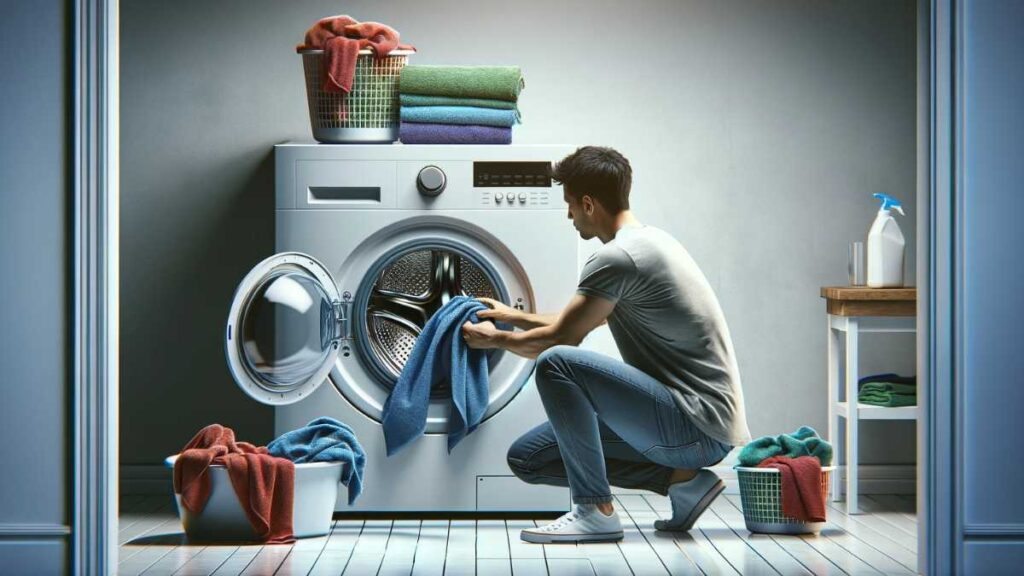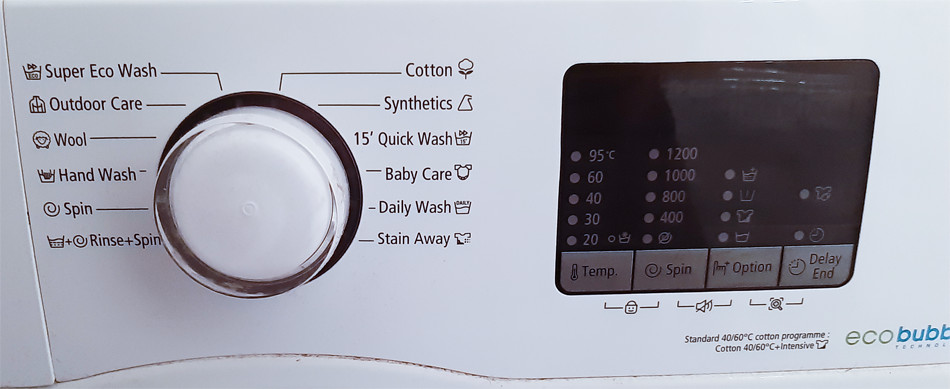7 Mistakes To Avoid When Washing Microfiber Towels
Car Detailing Planet is a part of Amazon Associates. As an Amazon Associate, we earn from qualifying purchases. Read our Affiliate Disclosure to learn more.
Microfiber cloths are fantastic products, but it’s easy to screw them up if you don’t wash them properly. Here are seven common mistakes people make when washing microfiber towels, so make sure to avoid doing those if you want microfiber towels for years.
Mistakes People Make When Washing Microfiber Towels

Here is a detailed list of the 7 most common mistakes people make when washing microfiber cloths. Be sure to follow the guidelines and keep your MF towels in good condition as long as possible.
1. Washing Microfiber Towels With Other Fabrics
Don’t wash microfiber towels with other clothes, especially not with cotton ones. Cotton clothes can leave tiny bits of fluff on the microfiber.
If you need to wash them with other clothes, pick ones that don’t leave fluff. Microfiber towels are great for cleaning, but we need to wash them the right way to make them last longer.
2. Washing All Microfiber Towels at Once
When you get new microfiber towels, they’re all clean and shiny.
But after you use them for different jobs like:
- Cleaning inside the car
- Cleaning outside the car
- Washing the car
- Cleaning the wheels
- Cleaning windows
- Cleaning the engine
Some towels get dirtier than others. It’s not a good idea to wash them all together. Imagine you used one towel to clean oily parts of the engine and another to dry the car. You wouldn’t want the oil to get on the drying towel, right?
A good tip is to sort your towels by color. Each color can be for a different job. That way, it’s easy to remember which towel is for what job!
3. Using Powder Detergent

Powder detergents can be too harsh for microfiber towels. They might clean the dirt, but they can also make the towels less soft.
It’s best not to use regular soaps on these towels. But if you need to, choose gentle liquid soaps like Tide Soft and Gentle Liquid Detergent. Gentle soaps help keep the towels nice and soft for a long time.
The very best detergents for microfiber towels are the ones made just for them. They’re gentle, but still get the towels super clean. One of the top soaps for this is called Chemical Guy’s Microfiber Wash.
4. Using Fabric Softeners
Putting softeners on microfiber towels when washing them isn’t good. Softeners can block the tiny parts of the towel that do the cleaning.
When this happens, the towel won’t clean as well. It won’t soak up water like before and won’t grab dirt from things.
If you’ve already used softeners on your towels, don’t worry! There’s a way to help them get a bit better. You can read about it in an article called Fix microfibers washed with fabric softeners.
The tips in that article might not make the towels perfect again, but they’ll be okay for cleaning things like wheels and engines.
5. Selecting Hot Temperature on the Washing Machine

Using hot water to wash microfiber towels is one of the biggest mistakes you can make. Heat is really bad for them.
Instead of hot water, it’s best to use cold or slightly warm water, making sure the temperature doesn’t go above 105° Fahrenheit. Good quality microfiber towels can be washed many times and still clean well, but if you use hot water, they might wear out after just a few washes.
Think about it: washing microfiber cloths incorrectly could mean you’re spending money on new towels way too often. Always check the washing instructions on the towel’s label.
While it might be challenging to always wash microfiber towels perfectly, following the advice in this article can help your towels last a lot longer.
6. Using Hot Drying Option
After washing your microfiber towels correctly, drying them becomes the next important step. Many people might think using a dryer is the easiest way. However, remember that heat is a major enemy of microfiber. Using high temperatures in your dryer can damage the special cleaning abilities of the towels.
The danger is that high heat can melt the tiny cleaning parts of the towel, even though they might still look the same. You’ll only notice the difference when you try to clean with them.
The safest way to dry microfiber towels is to hang them up, keeping them away from any heat. But if you’re in a hurry or prefer the softness of a dryer, make sure to use the coolest setting. Depending on your dryer, this might be labeled as “permanent press” or “air fluff.”
7. Drying Microfiber Towels Outside
While I’ve mentioned that hanging microfiber towels to dry is best, drying them outside might not be the ideal choice. Here’s why:
Imagine you’ve just cleaned your car, and it’s gleaming. If you leave it outside for even a day, you’ll notice dust settling on it. Over time, even without driving or rain, the car can get quite dirty just from the dust in the air.
The same happens with microfiber towels. When you dry them outside, they can catch all the dust and dirt carried by the wind. Then, when you use these dusty towels to clean, they might not do a good job. Worse, they could even scratch surfaces, like your car’s paint.
My suggestion? Dry your microfiber towels indoors, perhaps on a rack. If you have a garage, that’s even better. Just crack open a window to let in some fresh air, and your towels will dry without collecting unwanted dust.
How To Wash Microfiber Towels?

With so many mistakes mentioned above, you probably think that it’s hard to wash the microfiber towels. However, it isn’t. Once you do it, you will know how to wash and dry them for the rest of your life.
I will make a separate article on this topic, but now I’m just going to give you a quick guideline.
Follow these guidelines when washing microfiber towels:
That’s it! You now have fresh microfiber towels for the new detailing job.
Wrap Up
Microfiber cloths are a game-changer for car detailing and household cleaning. They’re incredibly versatile and effective for various cleaning tasks. However, their unique and delicate nature means they can be easily damaged if not cared for properly.
While microfiber towels are designed to last, with the potential for up to 500 washes, improper care can shorten their lifespan significantly.
To get the most out of your microfiber towels, avoid the 7 common mistakes highlighted in this article. By doing so, you’ll ensure they remain in top condition for many uses to come.

